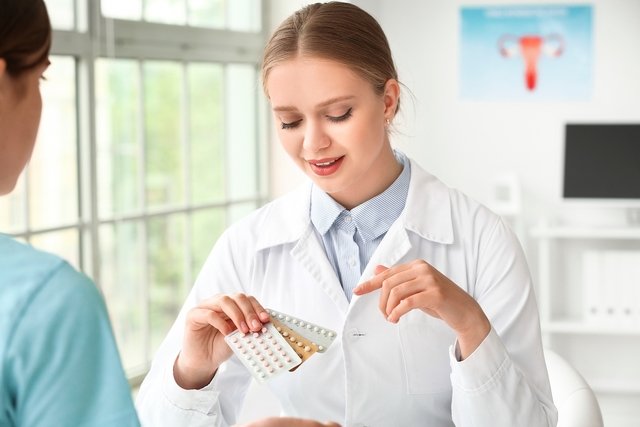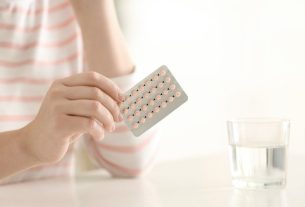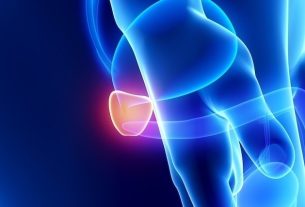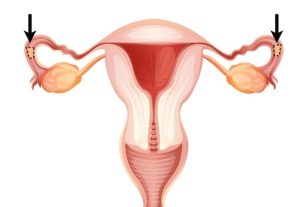Some contraceptives for acne, such as drospirenone, dienogest or chlormadinone, have an antiandrogenic effect, which helps control hormonal levels, reducing skin oil and the formation of pimples.
Normally, these contraceptives, in addition to the antiandrogenic substance, have an estrogen in their composition, such as ethinyl estradiol, with the effect on the skin observed between 3 and 6 months of continuous use of the pill.
Contraceptives for pimples or acne must be recommended by the gynecologist, according to hormonal levels and whether there is any associated condition, such as polycystic ovaries that may be causing acne.

Main contraceptives for acne
The main contraceptives for acne are:
1. Drospirenone
The contraceptive for pimples or acne containing drospirenone, in addition to preventing pregnancy, has an antiandrogenic effect, reducing acne lesions and sebum production, which reduces skin oiliness and the formation of pimples.
This contraceptive can be found in packages containing 28 tablets, 21 with drospirenone (white), and 4 inactive tablets (green).
Furthermore, it can also be found in pills containing drospirenone + ethinyl estradiol, containing 21, 24 or 28 tablets.
Trade names: Drospirenone alone can be found under the trade names Slinda or Ammy. Tablets containing drospirenone + ethinyl estradiol can be found under the names Elani 28, Elani Ciclo, Yaz, Yasmin, Ceci, Iumi, Angeliq or Niki, for example.
2. Cyproterone
Cyproterone is a progestin indicated for the treatment of severe acne, when other treatments, such as the use of creams or ointments, or antibiotics, are not suitable, as it reduces androgen levels in the body.
This contraceptive is found to contain cyproterone acetate + ethinyl estradiol, and is indicated only for the treatment of symptoms of changes in androgen hormones in women, and should not be used exclusively to prevent pregnancy.
If you need a contraceptive just to prevent pregnancy, you should consult your gynecologist to assess the best option. See how to choose the best contraceptive.
Trade names: Cyproterone acetate + ethinyl estradiol can be found under the trade names Selene, Diane 35, Repopil, Diclin, Dunia, Tess, Climene, Arterane, Lydian or Ferane, for example. Find out how to take Selene and Diane 35.
3. Dienogeste
Dienogest + estradiol valerate is indicated as an oral contraceptive to prevent pregnancy, having antiandrogenic activity, and therefore, can help reduce acne.
Furthermore, it can also be found containing only dienogest, but it has no contraceptive effect and is only indicated for the treatment of endometriosis.
Trade names: dienogest + estradiol valerate can be found under the trade name Qlaira. Tablets containing only dienogest are found under the trade names Allurene, Pietra ED, Kalist or Diost, for example.
4. Chlormadinone
Chlormadinone combined with ethinyl estradiol is indicated as an oral contraceptive to prevent pregnancy and for the treatment of moderate papulopustular acne.
This contraceptive is found containing 21 tablets containing chlormadinone acetate + ethinyl estradiol, or 24 tablets of chlormadinone acetate + ethinyl estradiol (pink) + 4 inactive tablets (white).
Trade names: Chlormadinone acetate + ethinyl estradiol can be found under the trade names Belara, Belarina, Liberfem, Amora, Cherry or Aixa, for example.
When to use birth control for acne
Contraceptives may be an option for controlling pimples in some women, especially when:
- Acne that has not improved with the use of topical products such as retinoic acid, adapalene or benzoyl peroxide or antibiotics. See which remedies are most used to treat acne.;
- Desire to use some contraceptive method, in addition to controlling pimples;
- Pimples that worsen or become more inflamed in the premenstrual period;
- When the cause of acne is a disease that increases androgen levels in the body, such as polycystic ovary syndrome.
As contraceptives modify hormone levels in a woman’s body, you should consult your gynecologist before starting to use them.
Furthermore, contraceptives can cause some side effects, such as nausea, pain and tenderness in the breasts, or bleeding outside of the menstrual period, and you should always have regular monitoring by a gynecologist. Understand better how contraceptives work and ask questions about how to use them.
Make an appointment with a gynecologist in the nearest region:
Taking care of your health has never been easier!
How they work
The most recommended contraceptives to help treat acne, act by reducing the production of sebum by the sebaceous glands, reducing follicular hyperkeratinization and reducing the proliferation of the bacteria that causes acne, called P. acnes.
Furthermore, contraceptives for acne reduce inflammation, therefore improving the appearance of the skin and reducing the appearance of new pimples.
Stopping birth control can cause acne
It is very common for women who have stopped using contraceptives to feel that their skin is more oily and that pimples appear, so you can use products that clean the skin on your face to control oiliness, such as lotions or soaps sold in pharmacies.
If the symptoms are very intense, you should go to the dermatologist for a skin assessment and prescription of more individualized treatments. Better understand the types of acne, and the best treatment for each one.
When you should not use contraceptives
The use of combined contraceptives is contraindicated in cases of:
- Pregnancy and breastfeeding;
- Children;
- Men;
- Smoking;
- High pressure;
- Presence of unexplained vaginal bleeding;
- Uncontrolled diabetes;
- Previous history of thrombosis, heart attack or stroke;
- Previous or family history of diseases that increase blood clotting;
- Breast cancer;
- Cirrhosis or liver cancer;
- Very strong migraines.
Furthermore, it should also not be used in people with hypersensitivity to any of the components of the contraceptive formula. Find out what the main complications of contraceptives are.

Sign up for our newsletter and stay up to date with exclusive news
that can transform your routine!
Warning: Undefined array key "title" in /home/storelat/public_html/wp-content/plugins/link-whisper-premium/templates/frontend/related-posts.php on line 12
Warning: Undefined array key "title_tag" in /home/storelat/public_html/wp-content/plugins/link-whisper-premium/templates/frontend/related-posts.php on line 13



